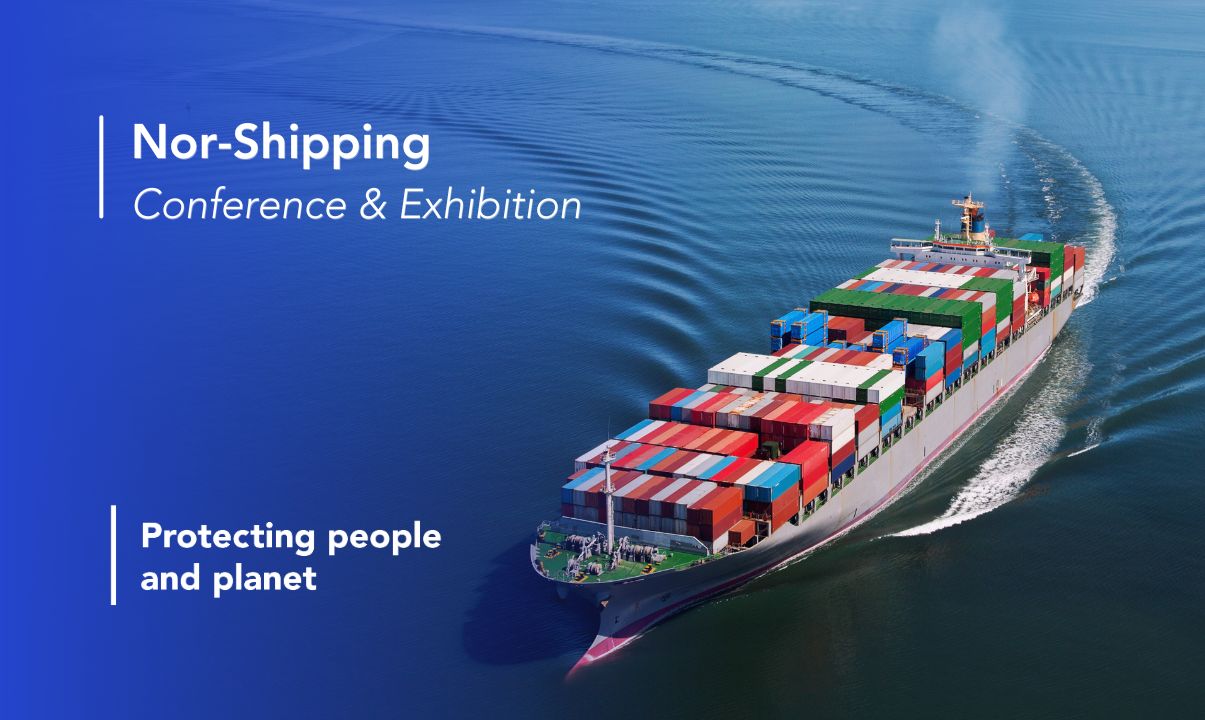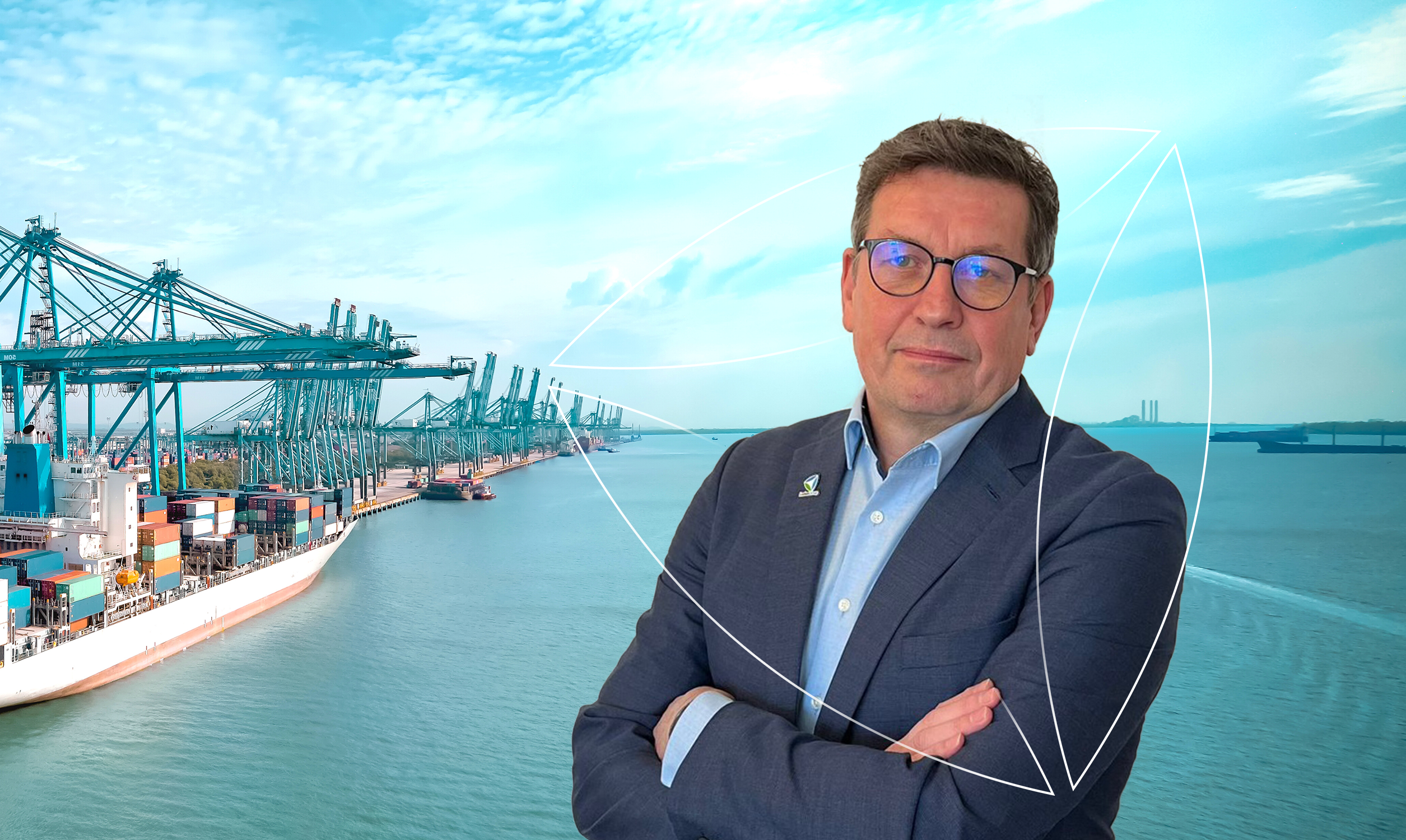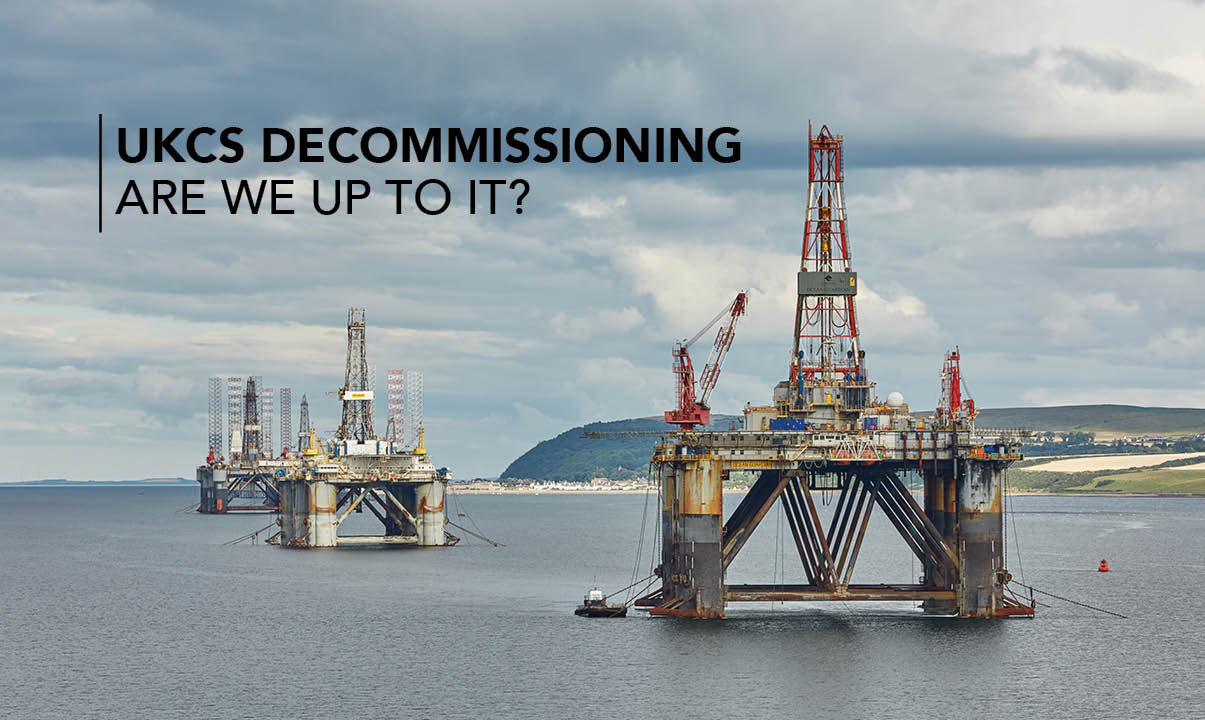ESG And The Maritime Shipping Industry
8 June 2023
According to S&P Global Platts Analytics report, the maritime shipping industry accounts for around 2.9% of global greenhouse gas emissions. Whilst this figure appears to be relatively low, around 90% of the world's goods enter the shipping industry, making the industry a key player in the development of a green supply chain.
Despite this, the shipping industry was omitted from the 2015 Paris Climate Agreement and the Net-Zero 2050 pledge. Human activity is overloading the Earth’s natural carbon cycle. This is unequivocal and unsustainable (Intergovernmental Panel on Climate Change - IPCC 2021). We need to reduce our Greenhouse Gas (GHG) emissions and turn the tide on climate change. This includes making key changes within the maritime shipping industry and implementing ESG from the seabed up.
In 2019 the Global Maritime Forum founded the ‘Getting to Net Zero Coalition’ with the Friends of Ocean Action and the World Economic Forum. The Coalition aims to commercialise zero-emission vessels that traverse deep-sea trade routes by 2030, with the necessary infrastructure to support scalable zero-carbon energy sources that encompass production, distribution, storage, and bunkering. In 2021, the Coalition increased its aspirations to fully decarbonise the sector by 2050 by means of an industry-led call to action for shipping decarbonisation and a recent announcement at the 2022 Getting to Zero Coalition Working Group session, aligning with science-based climate targets.
What Is ESG?
But decarbonisation is only one of the challenges facing the sector when it comes to holistic sustainability and ESG matters.
Put simply ESG is how we operate as organisations, within and towards the places and people that we interact with, seeking to understand what negative and positive impacts we have, and what risks and opportunities exist on our horizons.
Environmental, Social, and Governance (ESG) reflects an organisation’s commitment to include environmentally conscious business practices in tandem with robust social responsibility and corporate governance.
The term ESG has gained increasing traction since it was coined in the early 2000s by the UN’s Global Compact, which Lucion Group is a signatory to, in their report ‘’Who Cares Wins: Connecting Financial Markets to a Changing World’’.
The report recommended that to maintain relevance, companies and investors must acknowledge their role in working towards an ethical, sustainable and equal future and make commitments to improving the accountability/transparency of their organisations, assets and investments.
Today, this advice remains as relevant as it did in 2006. However, companies are often lost in a series of topical buzzwords such as ‘Sustainability’ and ‘Corporate Social Responsibility’. These words, despite having a nice ring to them, do not support those trying to navigate themselves away from ‘greenwashing’ towards disclosure of tangible activities that will strengthen their operations and work towards genuine progress.
This is where ESG (Environment, Social, Governance) stands out. It provides a simple framework for how businesses should approach this challenge. ESG allows companies to set out a clear list of intentions and to first focus on what is most material to themselves and their stakeholders, without overselling their progress and opening themselves up for criticism.
Broken down into its specifics elements ESG is:
E – Environment
In considering the ‘Environment', companies should reflect on their part as an agent of the physical environment, locally and globally. The ‘E’ in ESG identifies businesses' use of natural resources and the effect its operations have on the environment both in their direct operations, their supply chain, and how they influence a consumer’s behaviour towards the natural world.
S – Social
‘Social' refers to how a business considers and manages its impact on people, particularly its relationships between employees, suppliers, consumers, communities and other stakeholder groups. The ‘S’ in ESG identifies strengths and weaknesses when reacting to social global trends, and human rights framed in a local political context. ‘Social’ reviews a company’s actions in order to build its corporate responsibility in ensuring an ethical workplace for all.
G – Governance
'Governance' is the framework for ensuring appropriate authority and accountability that defines business decision-making. This includes everything from the creation of company policies to the distribution of rights and responsibilities among different stakeholder groups. The 'G' element is often disregarded when focused on climate risk and societal implications, however, understanding governance risks and opportunities in decision-making is critical for the success of ESG in companies as it frames the approach to how these topics are prioritised. In the Maritime Shipping sector, good Governance can be the reason for the prevention of serious human rights abuses.
There are a variety of tools and companies, including Lucion Group, that can quantify ESG using many different frameworks that adhere to the Global Reporting Initiative (GRI) and the Sustainability Accounting Standards Board (SASB), assisting shipping companies to make informed investment decisions.
Whilst ESG is not a “new thing”, it is a rapidly developing area of focus for internationally operating organisations and the IMO, placing a heavy focus on environmental concerns. As a key factor in the Poseidon Principles, a global framework that evaluates and reveals how financial institutions' shipping investments align with current climate objectives, ESG will play a huge role in the day-to-day decision-making of ship owners and executives.
ESG issues are playing an increasing role in organisations’ decisions around mergers, acquisitions, and development. Organisations are accountable to their various stakeholders like investors, customers, employees, and government organisations that want to evaluate a company’s impact on the world. Accordingly, organisations must provide an overview of their ESG risks and opportunities, the approach to mitigating or adapting to these risks, and financial implications.
When examining your organisation and operations, many reasons exist to place an emphasis on ESG for your organisation, including:
1. Risk Mitigation
You may have heard of the phrase, ‘you don’t know what you don’t know’. When it comes to protecting your company from criticism regarding environmental or social topics, there is a lot to go at. By assessing your business against appropriate ESG framework and metrics, you will quickly be able to assess any gaps that may present a risk to your business or fund.
2. Provide a holistic view of your business
As well as identifying risks, reviewing a company or fund against a set of ESG criteria will allow you to gain an overview of your business and show how you are currently presenting to your key stakeholders. That could be essential to securing a long-term contract; allowing you to recruit and retain the best talent; or providing an opportunity to take a leadership position in the market and bring up those in your value chain.
3. Reframing your purpose: Materiality
In understanding your business from a sustainable and ethical viewpoint, you will be able to dig deeper into what areas are most important to your company and the extent to which your current operations align with the ideals of your stakeholders. This will give you the tools to futureproof your company and inform business strategy.
It is no longer a "nice to have" framework or a distant future goal. The transparency on sustainable and socially responsible practices is crucial to the survival of companies moving forward as external audiences, key stakeholders and financial communities focus on how companies are making progress with ESG goals.
There is a continued growing alertness and demand for action amongst consumers; highlighting the responsibility, commitment and action needed to accomplish positive climate action and build a more sustainable, resilient future is imperative to achieving Net-Zero.
2 million people man the global merchant shipping fleet (estimated 50,000 merchant ships globally registered in 150 countries) with a further 120,000 workers on oil rigs (around 600 oil rigs globally) operating in the offshore sector worldwide.
These workers face occupational health risks, including exposure to hazardous substances, radiation, noise, vibration, extreme temperatures, and ergonomic hazards. Protecting worker health and welfare is crucial for the maritime industry.
Occupational health is about protecting the physical and mental health of workers and ensuring their welfare in the workplace, both during an asset's operational lifetime and at the point of decommissioning.
Proactive Protection - An Investment Must
For investors and owners, mitigating hazardous material and environmental risk is added value. Looking beyond the immediate cost implications of managing or remediating hazardous materials or implementing effective EHS systems, these activities add value to our vessel and offshore assets. These assets are investment vehicles. Over time these vehicles degrade and devalue. Mitigating this degradation through implementing an effective EHS and Hazardous Materials program can save you millions when it comes to divesting your assets.
As Lucion Group, we are a purpose-driven company, dedicated to protecting people from hazardous environments and protecting the environment from the impacts of people. We provide a wide range of ESG advisory services, including materiality assessments, ESG benchmark assessments and the development of Sustainability Strategies and ESG Action Plans.
Specific advice and consultancy support are also available, including environmental risk management, inspection, assessment and advisory services through our collective group of companies throughout the world.
We have over 600 employees working across 12 sectors, including marine vessels, maritime infrastructure and offshore. Our commitment to quality is reflected in our QHSE business management systems, which are accredited to ISO 9001, ISO 14001, and ISO 45001. Our mission is to prevent occupational and environmental risks and protect individuals whenever possible.
Thinking globally. Delivering locally.
With a global footprint through our membership in the Inogen® Alliance, our BOSIET-qualified and UK Oil & Gas Medical certified Hazardous Material Surveyors have vast experience working in multiple offshore environments across the globe, including in Canada, Brazil, Nigeria, and the North Sea. Our team understands that cooperation between clients, contractors, and other stakeholders is crucial to avoid conflict, meet deadlines, and deliver the project safely.
Servicing the global marine and offshore industry since 2002, Lucion is trusted by hundreds of clients including; Helix Well Ops, SBM Offshore, Vroon Offshore Services, and BW Offshore. From surveying, identification and management to asset recycling, dismantling and disposal consultancy Lucion assists clients in all aspects of compliance with SOLAS, the Hong Kong Convention and the EU Ship Recycling Regulations.
Lucion holds approval status with major IACS Classification Societies, including Lloyds Register, Bureau Veritas, and American Bureau of Shipping (ABS) as well as having directly employed DNV GL certified Marine HazMat Experts. We operate with skilled technical and scientific teams, across multiple sectors, providing fast and responsive support to our clients. Our people risk manage each project and deliver a solution that is not only effective but cost-effective.
Our knowledge of the issues surrounding the risk management and legal compliance of hazardous materials gives our clients complete reassurance throughout their project, with real-time visibility of all hazardous materials and all risks. Through our team, when our clients partner with us, they have our expertise and environmental management capabilities available locally throughout the length of every project.
Get in touch with our team and start reducing risk whilst scaling sustainably.
IMPACT Magazine
Industry news delivered by Lucion Group and its subsidiary companies.
Issue 2 May 2023
No sign-up required
Lucion Group Brochure
Lucion Group is a purpose-driven company where we protect people from hazardous environments and protect the environment from the impacts of people.
Find out about our suite of services with our overview services brochure.
No sign-up required
EHS Compliance: 12 Step Checklist
Download our free 12-step EHS Compliance Checklist and take the first step to safeguard your teams, contractors, and reputation.
No Sign-Up Required
 NexGen
NexGen
